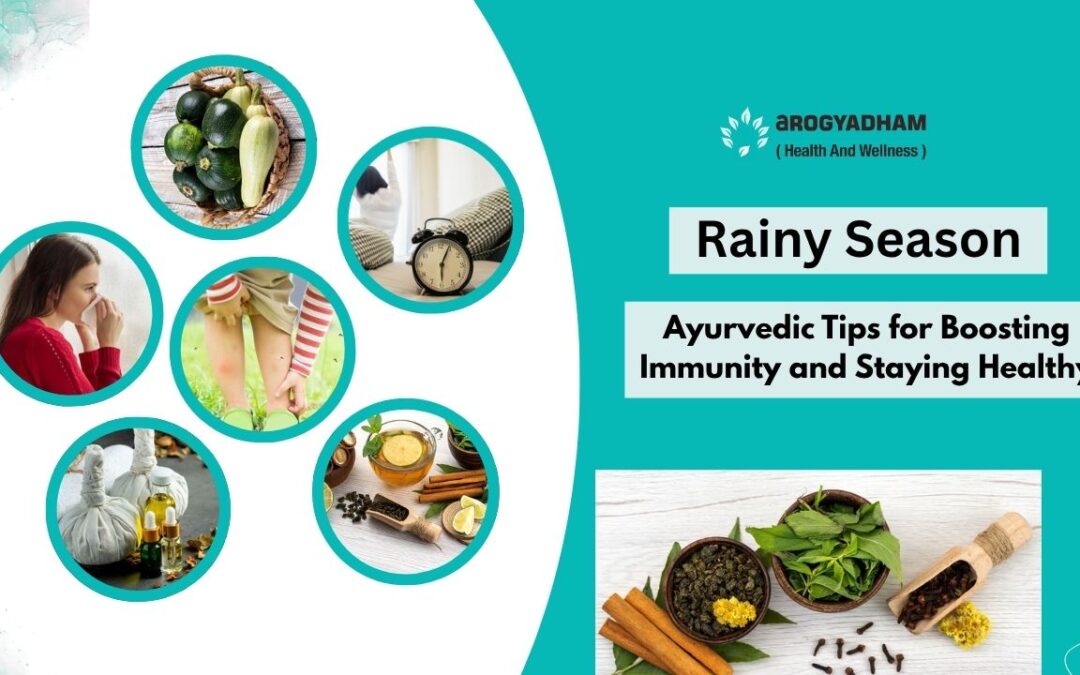Guide On Treatment And Precautions For Eye Flu (Conjunctivitis)
- Home
- /
- Ayurvedic Treatment
- /
- Guide On Treatment And...

Understanding Conjunctivitis and Its Causes
Have you ever wondered about the experience of handling a lifestyle without vision? While childhood activities like the “Blindfold” don’t pose any harm to your vision, they can serve as a reminder of the importance of caring for your eyes.
The eyes are the most essential organ of the human body that requires proper care. Over the past years, we have noticed a gradual increase in conjunctivitis and eye flu cases in India due to heavy rainfall and a polluted environment. It is easy to get this extremely infectious disease despite all the safety precautions for eye flu (conjunctivitis). So, at Arogyadham Health & Wellness, our Ayurvedic doctors in India have prepared a guide on eye care that will help you prevent eye flu or conjunctivitis. This blog will also shed light on some home remedies for eye flu and provide you with the best ways to prevent the spread of this viral infection.

Ayurvedic Home Remedies For Eye Flu (Conjunctivitis)
Here are some of the best home remedies our experienced Ayurveda practitioners suggest during the Ayurvedic treatment for eye flu.
Rose Water Compress:
- Method: Soak a cotton pad in pure rose water and gently place it on your closed eyelids for 10-15 minutes.
- Benefits: Rose water is known for its cooling and soothing properties. It can help reduce redness and alleviate the irritation caused by eye flu. Additionally, it may promote overall eye health.
Castor Oil Eye Drops:
- Method: Use pure, cold-pressed castor oil as eye drops by putting one or two drops in each eye before bedtime.
- Benefits: Castor oil can be incredibly beneficial for relieving dryness and discomfort associated with eye flu. It helps in lubricating the eyes and reducing irritation.
Cucumber Slices:
- Method: Place chilled cucumber slices on your closed eyelids for about 15 minutes.
- Benefits: Cucumber is renowned for its cooling and anti-inflammatory properties. This remedy can provide relief from the symptoms of eye flu, including redness and puffiness.
Neem Water Wash:
- Method: Boil neem leaves in water until the water turns green. Allow it to cool, and use it as an eye wash.
- Benefits: Neem has potent antibacterial properties. Using neem water as an eye wash can help combat infections that may be contributing to eye flu. It can also help to reduce inflammation and provide relief.
Triphala Eye Pack:
- Method: Make a paste using Triphala powder and water. Apply a thin layer around your eyes and leave it for 15-20 minutes. Then rinse it with lukewarm water.
- Benefits: Triphala is a classic Ayurvedic herbal formula known for its anti-inflammatory properties. Applying a Triphala eye pack can help reduce inflammation and discomfort associated with eye flu.
Bilberry Supplements:
- Method: Consult an Ayurvedic doctor for conjunctivitis to know the appropriate dosages of bilberry supplements.
- Benefits: Bilberry supplements are rich in antioxidants, particularly anthocyanins, which can support overall eye health. They may help alleviate the symptoms of eye flu and promote faster recovery.
It’s important to note that while these Ayurvedic home remedies for eye flu can be effective for mild cases, severe or persistent conjunctivitis symptoms should be consulted with a healthcare professional.

Precautions For Eye Flu (Conjunctivitis)
Preventing the spread of eye flu (conjunctivitis) and supporting your eye health requires a combination of precautions and good practices.
Here are some key precautions to take to prevent eye flu:
1. Frequent Hand Washing: Hand hygiene is essential in preventing the spread of conjunctivitis, which is highly contagious. Wash your hands frequently with soap and clean, running water, especially before touching your eyes or face.
2. Wash Your Eyes: Practice good eye hygiene by washing your eyes with clean, cool water regularly. This can help remove irritants and prevent infection.

3. Avoid Touching Your Eyes: You should avoid touching or rubbing your eyes, as this can introduce germs and irritants. If you need to touch your eyes, ensure your hands are clean.
4. Practice Good Hygiene: Use clean towels, tissues, or disposable wipes to gently clean your eyes, avoiding sharing these items with others. If you use contact lenses, follow strict hygiene practices for lens insertion, removal, and cleaning to prevent infections.
5. Maintain A Healthy Balanced Diet: Include a diet in your lifestyle that is rich in vitamins and minerals, especially those beneficial for eye health. Foods containing vitamins A, C, and E, as well as zinc and omega-3 fatty acids, can support your eyes.
6. Stay Hydrated: Good hydration is essential for overall health, including eye health. So, drink an adequate amount of water throughout the day to maintain the moisture balance in your eyes.
7. Incorporate Amla (Indian Gooseberry): Amla is a rich source of vitamin C, which is known for its properties to boost the immune system. Including amla in your diet can help your body fight off infections, including those that may cause conjunctivitis.
8. Avoid Irritants: It is recommended to protect your eyes from irritants such as smoke, dust, and pollen, especially if you are prone to allergic conjunctivitis. You must use protective eyewear when necessary and keep windows closed during high pollen seasons.
9. Avoid Sharing Personal Items: You should avoid sharing personal items like towels, makeup, or eye drops with others, as conjunctivitis can spread through contaminated items.
By practising these precautions for eye flu, you can reduce the risk of spreading eye flu and maintain healthy, clear eyes. Also, remember that early detection and prompt medical attention are vital if you experience persistent or severe conjunctivitis symptoms.
Also Read – 10 Natural Skin Care Tips By Ayurveda Skin Experts
Conclusion
Healthy vision is critical in everyone’s life to see and make sense of the world around us. If your eyes are feeling irritated, watery, painful, dry, red, fatigued, or swollen, incorporating these home remedies for eye flu into your routine can be a holistic and effective way to prevent and manage eye flu (conjunctivitis). The above-listed precautions for eye flu will be a beneficial approach for your eye health.
However, it’s important to remember that if your eye flu symptoms persist or worsen, it’s essential to consult with an Ayurvedic practitioner for a proper diagnosis and treatment for eye flu. You can consider approaching Arogyadham Health & Wellness, the top Ayurvedic Treatment Center in India, for your exclusive eye care. Book an appointment with our Ayurvedic doctors by contacting us at +91-8449333303 or info@arogyadhamhealth.com, and start your journey toward wellness with our unique range of Ayurvedic eye flu treatments.
Ready to Heal Naturally?

Share With












